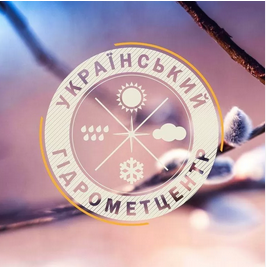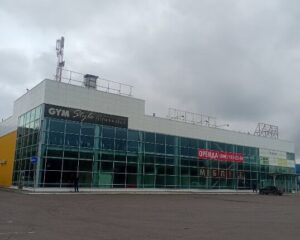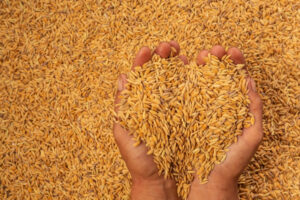
NAEK Energoatom and IC Persha on behalf of the Nuclear Insurance Pool of Ukraine (NIPU) on January 13, 2026 concluded a contract of compulsory insurance of civil liability for nuclear damage that may be caused as a result of a nuclear incident.
According to the Prozoro e-sales system, the value of the contract is UAH 167.913 million, with a validity period from January 29, 2026 to January 28, 2027.
A similar contract was concluded on January 17, 2025.
PJSC Insurance Company Persha has been operating in the insurance market of Ukraine since 2001. The main specialization is automobile insurance. It is a member of the ITSBU, the League of Insurance Organizations of Ukraine, the National Insurer of International Road Transport Books (TIR).
JSPU was established in September 2003 to insure nuclear risks on terms of joint and several liability. Its members are 14 insurance companies of Ukraine.

Moderate snow at night and light snow is expected in the east and south-east of Ukraine on Friday, January 16, in the rest of the territory without precipitation.
According to Ukrhydrometcenter, the roads are icy in places. The wind is northeastern, in the west of the country southeastern, 7-12 m/s.
The temperature at night is 13-18°, in the northern and Vinnitsa regions in some places 20-23°, during the day 9-14° of frost. In Prykarpattya, south and south-east of the country at night 8-13°, during the day 4-9° of frost. In Transcarpathia, 1-6° of frost at night, about 0° during the day.
In Kiev on January 16, there is no precipitation. The roads are icy in places. The wind is northeasterly, 5-10 m/s. The temperature is 15-17° at night and 11-13° of frost during the day.
According to the Central Geophysical Observatory named after Boris Sreznevsky. Borys Sreznevsky, for all the time of meteorological observations in Kiev on January 16, the highest temperature during the day was recorded at 7.1° of heat in 1989, the lowest at night at 24.3° of frost in 1943.
On Saturday, January 17, in Ukraine, mostly without precipitation, only in the south-east of the country in some places light snow. The roads are icy in places. The wind is northeast (in the west of the country southeast), 5-10 m/s.
The temperature is 13-18° at night and 9-14° of frost during the day. In the south and southeast of the country at night 8-13°, during the day 4-9° of frost. In Transcarpathia at night 4-9° frost, during the day 0-5° frost.
In Kiev on January 17, there is no precipitation. The roads are icy in places. The wind is northeasterly, 5-10 m/s. The temperature is 15-17° at night and 11-13° of frost during the day.

A public and commercial center with a total area of 9,924.5 square meters, located in Mykolaiv on Heroes of Ukraine Avenue, has been put up for sale on the OpenMarket electronic auction after being seized by a private enforcement agent. The public and commercial center.
“Such properties can become important points of economic recovery. The open auction format creates competitive conditions for attracting investors and the further effective use of commercial real estate,” said Roman Osadchuk, CEO of SETAM.
The auction is scheduled for February 5, 2026, with a starting price of UAH 103.3 million, including VAT.
The property includes two full floors, a superstructure, and a large number of retail, administrative, warehouse, and technical premises. The building is equipped with engineering networks, an autonomous boiler room, water and electricity supply systems, ventilation, and has significant space for tenants.
The design and layout allow the property to be used as a shopping and entertainment center, logistics or service complex, business hub, or multifunctional commercial space.
The OpenMarket electronic auction has been operating in Ukraine since 2014 and is a convenient tool for purchasing and selling property online. In total, assets worth over UAH 26.7 billion have already been sold through the system.

The potential cost of a hypothetical deal on the purchase of Greenland by the United States could be up to $700 billion, a number of media outlets reported, citing NBC News. The publications claim that the assessment was prepared by experts and former U.S. officials, and U.S. Secretary of State Marco Rubio was allegedly tasked to draft a proposal for the purchase of the island in the coming weeks.
At the same time, it is emphasized that this is not an official price position of the US government, but a calculation within the framework of discussions around the initiative of President Donald Trump. According to NBC News’ retelling of the story, the $700 billion amount is comparable to more than half of the Pentagon’s annual budget, illustrating the scale of the financial and political hurdles to any such “deal.”
The reaction from Copenhagen and Nuuk remains negative. Denmark and Greenland authorities have publicly stated that the island is not for sale and that the issue of the autonomous territory’s status is related to sovereignty and the right to self-determination. Reuters reported this week that after a meeting in Washington between Rubio and U.S. Vice President J.D. Vance, the Danish and Greenlandic sides, while not changing their “no-sale” position, agreed to set up a working group to discuss a wide range of issues related to security and cooperation around the island.
The new $700 billion estimate falls in line with a number of previous, highly divergent “paper” estimates that have appeared in recent years. For example, The Washington Post in 2019 within the hypothetical valuation called a very wide range of possible price – from hundreds of millions of dollars to $1.7 trillion.
U.S. interest in Greenland is usually explained by a combination of security and resource factors. The island occupies a key position in the Arctic and North Atlantic, and is also seen as a potentially significant territory in terms of access to minerals and strategic infrastructure.
At the same time, even if there is political will in Washington, the “purchase” scenario is constrained by basic legal and political limitations: Greenland is an autonomous territory within the Kingdom of Denmark, and its status and future, according to the position of local and Danish authorities, cannot be subject to external “bargaining”. Against this background, analysts call the most realistic continuation of the plot not a change of sovereignty, but bargaining around increased U.S. cooperation with Denmark and Greenland – on defense, infrastructure and investment – without formally changing the island’s status.

Ukraine has significantly reduced its presence in the EU market for soft wheat supplies in the 2025/26 season: its share in EU imports fell to 22.3% from 67.3% a year earlier, according to SPIKE BROKERS.
According to the statistics, soft wheat imports to the EU fell by 52% from 4.43 million tons to 2.15 million tons, while Ukraine’s share fell from 2.98 million tons to 479,000 tons, meaning it lost its leading position among suppliers.
Against this backdrop, Canada increased its share of EU imports to 40% (858,000 tons) compared to 13% a year earlier, while Moldova and Serbia increased their presence to 17.3% and 14.3%, respectively.
SPIKE BROKERS also notes that Ukrainian wheat exports in early January were concentrated mainly in the markets of the Middle East and North Africa, while activity in the EU remains minimal.